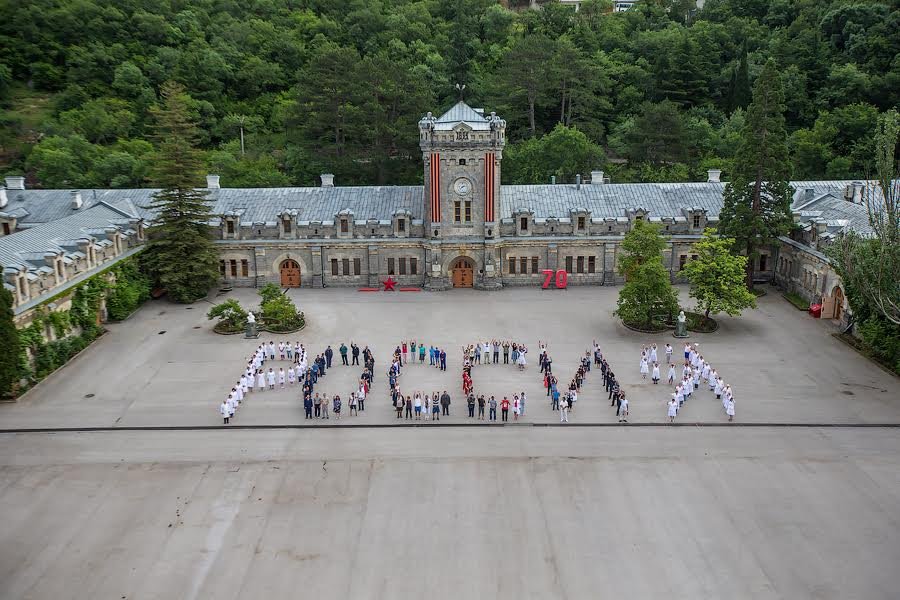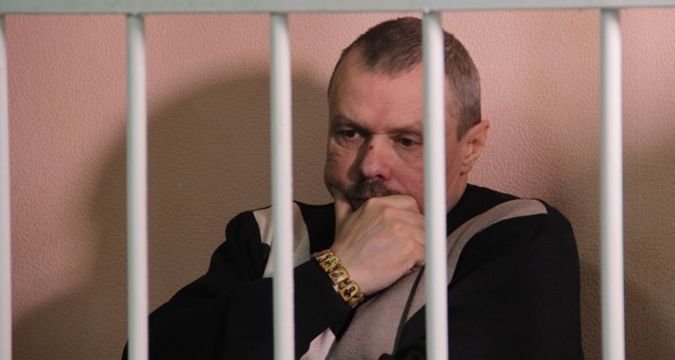Start reading here
Protecting and ensuring rights of Crimeans
The Public Prosecution Office of the Autonomous Republic of Crimea that was restored on the mainland is the most active agency dealing with problems of rights violations on the occupied peninsula. One of the most important focus areas of the supervisory agency was initiating criminal cases against former Crimean deputies and government officials on suspicion of treason against the State. In particular, 760 people were summoned for questioning by the prosecutor’s office in June 2016. Of course, none of them came, but this fact won’t free the traitors from responsibility – their cases will be sent to the court for trial in absentia.

Deputy prosecutor of the Autonomous Republic of Crimea Petr Kovalenko
“About 130 former deputies of the Autonomous Republic of Crimea and the Sevastopol state council are in the wanted list, plus we will have soon the materials regarding three hundred employees,” the deputy prosecutor of the Autonomous Republic of Crimea Petr Kovalenko talked about the agency’s activities.
In addition, almost 300 former employees of the Crimean prosecutor’s office were served with charges of committing the treason against the State.
The properties of Crimean traitors of the list of former deputies, judges, civil servants and others were arrested at the initiative of the supervisory agency. 35 apartments and 27 houses, 19 land plots, 47 vehicles and 13 accounts in Ukrainian banks in the amount of 1.5 million hryvnas were in the list of arrested properties.
The prosecutor’s office also led the pre-trial investigation of appropriation of the state property by occupational authorities of Crimea, the sale of vintage Massandra wines and others.

Photo: press service of the Federal State Unitary Enterprise “PJSC Massandra”
The Main Department of the National Police in the Autonomous Republic of Crimea and Sevastopol located in Odessa is conducting investigatory actions regarding violations of the rights of individuals and entities.
There are more than 190 criminal proceedings of the violation of citizens’ rights currently initiated: cases of violation of the inviolability of property – 60 (mainly searches conducted by the Russian military and security services) and cases of illegal deprivation of liberty – 90. More than 90 criminal cases of repressions, 10 of which – of willful killings, have been registered on the mainland.
In addition, the Crimean Police Department is investigating the cases of appropriation of Ukrainian state property by occupational authorities of Crimea. There are more than 50 criminal proceedings initiated and the material loss of 24 of them is estimated at 300 billion hryvnas.
Regional offices of the State Migration Service of Ukraine (SMSU), where residents of occupied Crimea can get a wide range of services – from placing a photo in the passport to obtaining the Ukrainian passport, are dealing with current issues of Crimeans.
The SBU Department in the Autonomous Republic of Crimea and in Sevastopol, the main task of which is to record all the crimes committed by occupants on the peninsula to ensure their punishment in the future, renewed its activity in the Kherson region.
“We need to document and investigate the maximum number of crimes committed by all people involved in the occupation on the peninsula while maintaining peace and legality in each area of our land behind the Crimean isthmus,” the SBU head Vasiliy Gritsak outlined the tasks of the Crimean department.
In addition to the above-mentioned agencies, the State Border Service of Ukraine, which is supervising three entry/exit border checkpoints at the temporarily occupied territory of the Autonomous Republic of Crimea (EEBC) – “Kalanchak”, “Chongar” and “Chaplynka”, as well as customs agencies that control the transportation of goods between the mainland and occupied Crimea have a direct impact on the fate of Crimeans.
Starting from 2016, the MIA Regional Service Center in the Autonomous Republic of Crimea and Sevastopol, whose responsibilities include operations with the state registration of vehicles and issuance of driver’s licenses and others, began to work near the administrative border with Crimea.
Crimeans in courts
Ukrainian courts are dealing with Crimean issues mainly in two areas. The first one is related to the prosecution of traitors, deserters and those who contributed to the peninsula’s annexation. Although there are no sentences made for treason and in reality, the court is considered the case of only ex-deputy of the Supreme Council of Crimea Vasiliy Ganysh, the General Prosecutor’s Office of Ukraine is confident that they can seek the conviction of traitors in absentia.

Ex-deputy of the Supreme Council of the Autonomous Republic of Crimea in the court room
At the same time, courts have already brought a number of indictments against deserters from the Ukrainian army, who didn’t arrive at their locations while not leaving the Armed Forces of Ukraine. Moreover, citizens, who are residing in mainland Ukraine while supporting the occupation of Crimea in some way of another, starting from the participation to prepare the ‘referendum’ in March 2014 and ending with the ‘service’ in local self-defence units, were sentenced to different terms of imprisonment.
However, if the courts protect the interests of the Ukrainian state as for the situation with traitors, then when it comes to protecting the rights of Crimeans in their relations with banks of Ukraine, servants of Themis bring verdicts in favor of financial institutions.
The decision of the Supreme Administrative Court of Ukraine (SACU) on returning a non-resident status for Crimeans, which the National Bank gave to the residents of the occupied peninsula regarding a number of financial transactions by its decree #699 of November 3, 2014, was one of the most controversial decisions. Later, this decree was annulled by the decision of the Kyiv Court of Appeal. However, the SACU supported the National Bank and resumed everything in January 2015.
Ukrainian courts also stand guard over banks in most cases related to returning the deposits that Crimeans lost due to the annexation. It is especially difficult to be in litigation with the country’s largest bank – PrivatBank, since the cases are considered at the place of defendant’s registration – in Dnepr, which is still the ‘fiefdom’ of the Ukrainian oligarch Igor Kolomoyskiy, who owns the bank.
“As you know, this organization categorically refuses to repay the deposits established on the temporarily occupied territory. The PrivatBank’s motivation looks rather weak, but nevertheless the deposits are not repaid,” the lawyer of the network of free legal offices of the Ukrainian Helsinki Human Rights Union Anna Rassamahina said.
In general, there are many agencies and institutions that directly or indirectly deal with Crimean issues, but the work of most of them can’t be considered as the effective one: there is no deoccupation strategy, it is often very difficult for Crimeans to protect their rights not only on the occupied territory, but also in mainland Ukraine. As a result, it seems that Ukraine has very little interest of Crimea and mainly community workers are dealing with the problems of Crimeans. Although we can’t say that the Ukrainian state completely ignores the Crimean issue – it is doing something, but very little, making long decisions that often are superficial or even wrong. However, the process of returning Crimea under the Ukrainian flag is a rather complicated case, which is not as fast as we would like.












